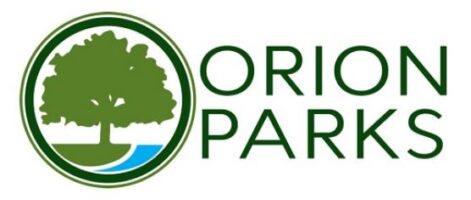
Catalyst Communities program will help communities

FOR IMMEDIATE RELEASE Sept. 16, 2020 Nick Assendelft, Public Information Officer, AssendelftN@Michigan.
Catalyst Communities program will help communities address climate impacts on public health, emergency preparedness Local officials can sign up for series of online classes
LANSING, Mich. — The Michigan Department of Environment, Great Lakes, and Energy (EGLE) and Governor Whitmer announced today the Catalyst Communities program, a comprehensive initiative to provide educatio
“Michigan has seen and continues to experience the lasting effects of climate change and we have a responsibility to do everything in our power to protect Michigan families, environment, and economy,” said Governor Whitmer. “This program will give communities the resources they need to continue to implement real change that is seen and felt by Michiganders across the state.”
The online Climate Academy training will kick off in November, but local officials can sign up now for the series of training classes and to receive more information. The program is a multi-tier instruction curricu
Action on climate must be taken at all levels and local responses are key to ensuring that Michigan’s 10 million residents are able to cope with the stresses of changes that can no longer be avoided, EGLE Director Liesl Clark said.
“The impact of climate change is real. We’re seeing it in our pink skies from West Coast wildfires and in mosquito-borne diseases as well as severe weather that is made worse by high lake levels,” Clark said. “Catalyst Communities will lift up the work ongoing in communities from Northport to Marquette and from Grand Rapids to Detroit. Catalyst Communities will support communities that want to do more and need to hear their options. And the program will create a place to learn for locals who want to take action and need to see what the path might be.”
Participants will work to secure a resilient future for their communities into the next century by building emergency response preparedness, public health awareness, and economic revitalization solutions. These tools will help every Michigan community to succeed in a changing climate and the transition to clean energy.
The program, facilitated by EGLE’s Office of Climate and Energy under Dr. Brandy Brown, includes these four principal themes that move Michigan toward climate readiness:
The Catalyst Communities Program continues Gov. Gretchen Whitmer’s focus on preparing Michigan for the wide-ranging impacts of climate change. Shortly after taking office, Gov. Whitmer said the impacts of global climate change are being felt in Michigan and are projected to intensify in the future. In Executive Directive 2019-12, the Governor committed the State of Michigan to implement policies that advance the goals of the Paris Agreement, track progress toward climate action goals, and accelerate new and existing policies to reduce carbon pollution and promote clean energy deployment at the state and federal level.
The Office of Climate and Energy was created by Gov. Whitmer to coordinate activities of state departments and agencies on climate response, provide insight and recommendations to state government and local units of government on how to mitigate climate impact and adapt to climate changes; and provide guidance and assistance for the reduction of greenhouse gas emissions, renewable energy and energy efficiency, and climate adaptation and resiliency.
|








